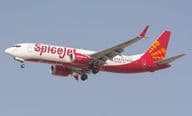UAE-Oman Rail Service Revolutionizes Regional Trade

New Rail Freight Service Launches Between UAE and Oman - Trains to Operate Daily
Economic ties between the United Arab Emirates and Oman are reaching new heights with the imminent launch of a railway freight service. Abu Dhabi-based Noatum Logistics, part of the Abu Dhabi Ports Group, and Hafeet Rail, the developer and operator of the region's first cross-border rail network, have signed an agreement to establish a new freight route. The objective is for trains to run daily between Sohar (Oman) and Abu Dhabi, offering a more efficient, sustainable, and safer alternative to road transport.
Background and Significance of the Agreement
The agreement was signed at the Global Rail 2025 exhibition held in Abu Dhabi, a major regional event for railway transportation and logistics. This collaboration is a milestone in the economic integration of the UAE and Oman, as Hafeet Rail will be the first rail network to physically connect the two countries.
The new service aims to make rail freight the logistical backbone of the region, reducing road congestion, and speeding up the flow of goods between ports, industrial zones, and commercial centers.
Details of the Rail Service
Noatum Logistics will operate freight trains daily, utilizing Hafeet Rail's infrastructure. Seven container trains will run weekly, each with a capacity of 276 TEU (twenty-foot equivalent unit), translating to approximately 193,200 TEU transshipments annually.
The trains will carry different types of containers—20, 40, and 45-foot units—that accommodate a wide range of products: general goods, industrial items, food, pharmaceuticals, agricultural produce, and other basic supply items. This means the railway is not just a logistical development but a stable, supply chain-based infrastructure that strengthens the economies of both countries.
Rail vs. Road - Advantages of Sustainable Logistics
Rail transportation offers numerous advantages over road freight. It is more predictable and cost-effective, especially for large volume and medium-long distance shipments. It also significantly reduces environmental impact, as trains consume less fuel and emit less carbon dioxide per ton.
The collaboration between Hafeet Rail and Noatum simplifies cross-border freight traffic and supports the UAE and Oman's net-zero emissions strategies. In the long term, the railway could reduce emissions per ton by up to 70% compared to road transport, marking significant progress towards sustainable logistics.
Strategic Connection Between Two Key Points
The Port of Sohar is one of Oman's most important economic gateways, through which a significant amount of goods flow to the Middle East, Africa, and Asia. In contrast, Abu Dhabi is one of the region's fastest-growing logistics centers, with Khalifa Port and KIZAD (Khalifa Industrial Zone Abu Dhabi) offering globally recognized multimodal infrastructure.
The new rail link does not merely connect two cities but two economic ecosystems: Omani industrial capacities and Emirati logistical networks. The route offers faster transit times compared to maritime shipping while relieving congestion at road crossings, thereby reducing traffic bottlenecks and turnaround times.
Alignment with Regional Rail Strategy
Hafeet Rail plays a key role in building the integrated rail system of the Gulf region, which in the longer term would connect all GCC countries (UAE, Oman, Saudi Arabia, Kuwait, Qatar, Bahrain). The line between the UAE and Oman is its first and most important section, which will eventually connect to the Etihad rail network.
This rail investment is more than just an economic project – it holds geopolitical significance. The cooperation strengthens the political and economic alliance between the two countries and lays the groundwork for creating a unified logistics corridor among the GCC nations.
Impact on Supply Chains and Trade
The new rail freight service is expected to have a significant impact on reducing logistics costs and transportation times. The railway allows for larger shipments to be moved along a single route, with less administrative work and lower insurance costs than road freight.
This is particularly beneficial for the food and pharmaceutical industries where supply chain stability is crucial. It also opens new opportunities for industrial producers and exporters, who can reach the Omani market and international ports faster and more predictably.
Role of Noatum and Hafeet Rail in Future Logistics
Noatum Logistics is already actively participating in the development of the Emirati rail network. The company previously launched the rail connection between Khalifa Port and Fujairah Terminal, linking the region's eastern and western ports. The new Sohar–Abu Dhabi line expands this system further south, creating one of the region's most efficient overland logistics axes.
Hafeet Rail will be responsible for developing, operating, and maintaining the railway infrastructure. The project ensures maximum efficiency and security with modern, automated control systems, electronic border crossing solutions, and digital tracking.
Summary
The new rail freight service between the UAE and Oman is not just a logistical development but a strategic step toward regional economic integration. The daily freight trains between Abu Dhabi and Sohar introduce a new dimension to trade between the two countries, enhancing transport efficiency and supporting sustainable economic growth.
Rail transport is a modern, eco-friendly, and reliable solution that could reshape the logistics map of the Middle East in the long term. The collaboration between Hafeet Rail and Noatum Logistics shows that the region’s countries are committed to a future-oriented, green, and integrated infrastructure—where rail once again plays a central role.
(Source of the article is based on announcements at the Global Rail 2025 exhibition.)
If you find any errors on this page, please let us know via email.


